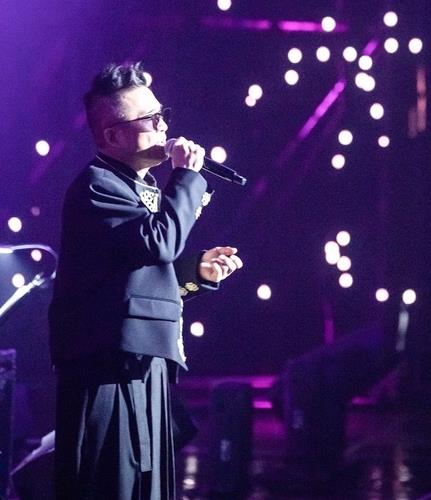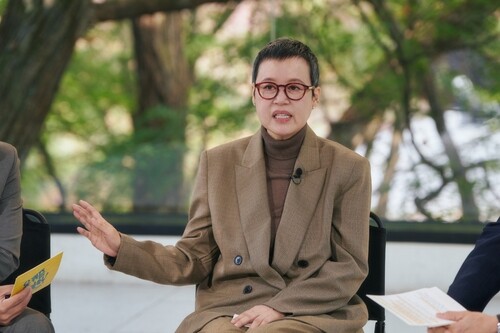UN official-NK launch
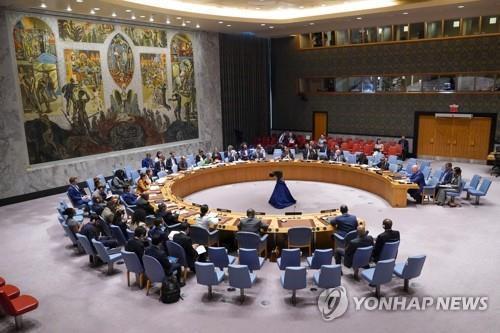 |
| ▲ This AP photo shows a U.N. Security Council session in progress. (Yonhap) |
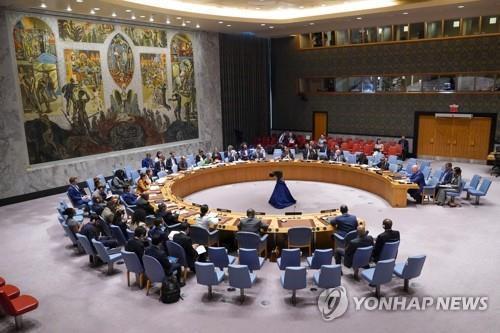 |
| ▲ This AP photo shows a U.N. Security Council session in progress. (Yonhap) |
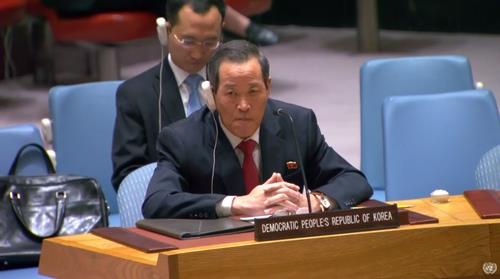 |
| ▲ This photo, captured from U.N. Web TV, shows North Korean Ambassador to the U.N. Kim Song attending a U.N. session in New York. (PHOTO NOT FOR SALE) (Yonhap) |
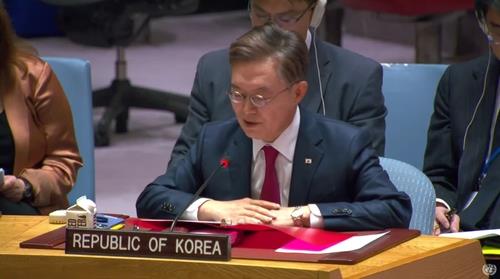 |
| ▲ This photo, captured from U.N. Web TV, shows South Korean Ambassador to the U.N. Hwang Joon-kook attending a U.N. session in New York. (PHOTO NOT FOR SALE) (Yonhap) |
UN official-NK launch
U.N. official criticizes N. Korea's rocket launch as 'serious' risk to civil aviation, maritime traffic
By Song Sang-ho
WASHINGTON/NEW YORK, Nov. 27 (Yonhap) -- North Korea's rocket launch poses a "serious' risk to international civil aviation and maritime traffic, a senior U.N. official said Monday during a U.N. Security Council (UNSC) session on the North's recent space rocket launch.
Khaled Khiari, assistant secretary-general for the Middle East, Asia and the Pacific, made the remarks during the session on the launch last Tuesday, which South Korea, the United States and others condemned as a violation of UNSC resolutions banning any launch using ballistic missile technology.
"The DPRK's launch represents a serious risk to international civil aviation and maritime traffic," Khiari said, referring to the North by its official name, the Democratic People's Republic of Korea.
"While the DPRK issued a prelaunch notification to the Japanese Coast Guard, it did not issue airspace or maritime safety notifications to the International Maritime Organization, the International Civil Aviation Organization or the International Telecommunications Union," he added.
The North's launch came before the beginning of a 10-day launch window that the North informed Japan of. Observers said that the launch might have proceeded earlier than planned due to weather conditions and other factors.
Khiari recalled Secretary General Antonio Guterres's condemnation of the launch, noting that while sovereign states have the "right to benefit from peaceful space activities," UNSC resolutions "explicitly" prohibit the DPRK from conducting any launches involving ballistic missile technology.
The U.N. official pointed out that the North's reconnaissance satellite development program is part of a five-year military plan that the reclusive state unveiled in January 2021.
"It should be recalled that developing a military reconnaissance satellite was part of the plan along with various other weapons systems, including so-called tactical nuclear weapons," he said.
"The DPRK has consistently demonstrated its strong intention to continue pursuing its nuclear weapons and ballistic missile programs in violation of relevant Security Council resolutions. We emphasize once again our call on the DPRK to refrain from such actions," he added.
With tensions mounting on the Korean Peninsula, the official emphasized the importance of re-establishing communication channels and having "off-ramps."
At the session, North Korean Ambassador to the U.N. Kim Song defended the latest rocket launch as an exercise of the North's "sovereign" right to do so, accusing the UNSC of repeating its "abnormal and absurd" practices of only making an issue of the North's satellite launches.
"Nearly seventy years have passed since the first artificial satellite was launched into space and more than 5,000 satellites are now orbiting the earth," he said, decrying the UNSC session as a "flagrant" violation of the North's sovereignty and "serious" interference in its internal affairs.
Kim made clear that its spy satellite aims to monitor military activities of the U.S. and its allies.
"The DPRK's launch of reconnaissance satellite is to get a clear picture of the dire military moves of the U.S. and its followers so that we could be fully prepared for them, with their aggressive nature becoming all the clearer as days go by," he said. "It is a legitimate and righteous exercise of the rights to self defense which fully belongs to the legal sphere of our self defense."
Kim also took a swipe at the U.S. that has stressed the North's violations of UNSC resolutions through rocket launches.
"Then, I have a question: Is the U.S. launching its satellites with a balloon or a catapult, if not with a carrier rocket that uses the same technology as a ballistic missile?" Kim said wryly.
South Korean Ambassador to the U.N. Hwang Joon-kook said that Pyongyang is moving beyond just violating UNSC resolutions to breaches that "now almost mock" council decisions.
"The DPRK designated November 18th as the so-called 'Missile Industry Day' to commemorate the test launch of Hwasong-17 ICBM on the same day last year," Hwang said. "I cannot find any other country in the world which celebrates in the calendar its illegal activity explicitly banned by the UNSC."
Hwang also highlighted the North's provocative action is no longer a regional issue.
"It is an issue of global concern directly affecting all parts of the world," he said. "Left unchecked, the DPRK s proliferation of weapons and military technology whether conventional or even nuclear will further aggravate insecurity around the globe."
(END)
(C) Yonhap News Agency. All Rights Reserved













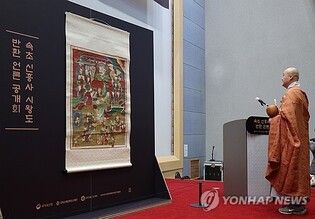


![[가요소식] 조항조, 새 싱글 '아버지란 그 이름' 발표](https://korean-vibe.com/news/data/20251116/yna1065624915927473_582.jpg)

